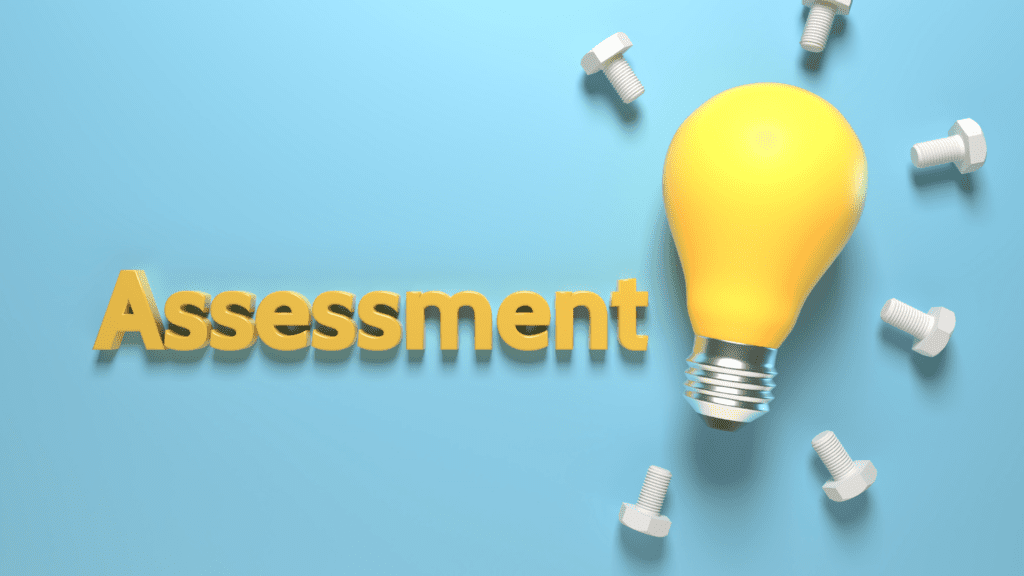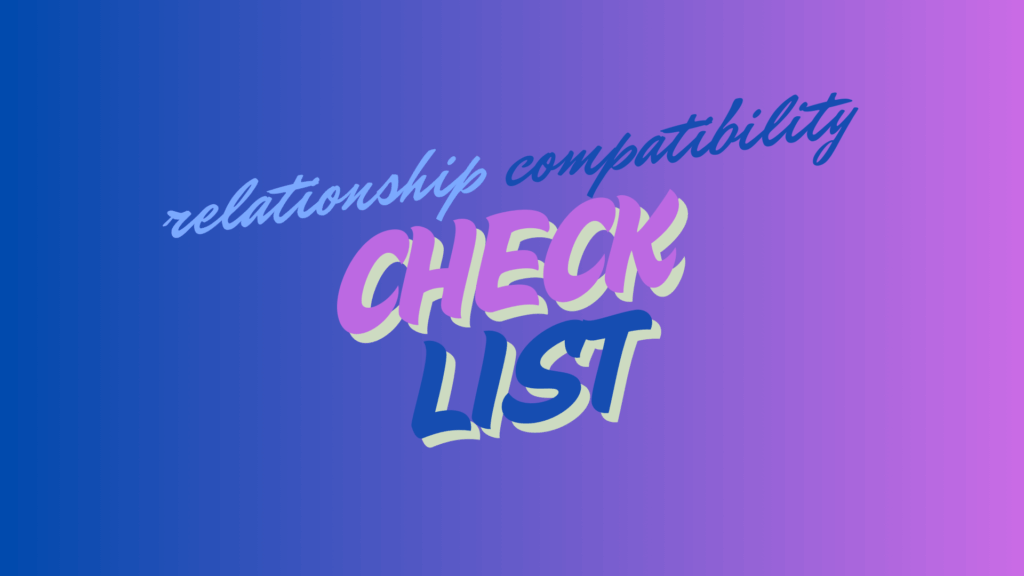Importance of Assessing Compatibility in Relationships: Why it Matters
Assessing whether you and your partner are compatible is one of the most crucial steps in determining long-term relationship success. While chemistry and attractcion and attraction often dominate the early stages of dating, true compatibility goes far deeper than surface-level connections. It’s not just about shared interests, mutual hobbies, or a strong physical spark—it’s about whether your emotional frameworks, communication styles, and life visions are in sync.
Many relationships begin with an exhilarating rush of passion, but without first assessing compatibility in relationships, that initial excitement can quickly fade, giving way to cycles of misunderstanding, frustration, and unmet emotional needs. Neuroscience and psychology reveal that our brains form attachments based on patterns of reinforcement—when those patterns are rooted in emotional security, mutual support, and shared values, the relationship is far more likely to flourish.
However, when compatibility is overlooked in favor of temporary attraction, the brain instinctively seeks short-term emotional highs, which can create toxic cycles, misaligned expectations, and emotional exhaustion. Understanding core compatibility from the outset helps build a foundation that fosters long-term fulfillment and stability rather than fleeting connection.
True compatibility in relationships isn’t about never disagreeing or being perfectly alike—it’s about whether two people can navigate challenges together in a way that strengthens the relationship rather than erodes it. When you identify compatibility indicators early on, you empower yourself to build a partnership that is not only fulfilling in the present but designed to grow, evolve, and stand the test of time.
So, how do you know if you and your partner are genuinely compatible in a way that fosters long-term connection and emotional security? One effective way is through couples compatibility assessments, which help identify strengths, potential challenges, and areas of alignment in a relationship. By using structured evaluations and neuroscience-backed insights, individuals can gain a clearer understanding of their compatibility. These assessments focus on the pillars of compatibility, which include emotional intelligence, shared values, communication styles, and conflict resolution skills—all critical components for long-term relationship success. Let’s dive into the key neuroscience-backed markers of compatibility that determine whether your relationship is built to last.

The Neuroscience of Assessing Relationship Compatibility
Relationships are not just emotional experiences; they are neurological events shaped by brain chemistry, attachment patterns, and cognitive processing. The way two people connect—how they regulate emotions, respond to stress, and build trust—is influenced by the brain’s intricate neural pathways, particularly within the limbic system, which governs emotions and attachment.
When assessing compatibility in relationships, neuroscience provides valuable insights into why some connections feel effortless while others are riddled with conflict. Understanding how the brain forms bonds can help individuals make informed choices about long-term partners rather than relying solely on attraction or chemistry.
Key Neurological Markers of Assessing Compatibility in Relationships
Aligned Attachment Styles
Every person has a unique attachment style, shaped by early life experiences. Individuals with secure attachment tend to form stable, trusting relationships, while those with anxious or avoidant attachment may struggle with insecurity, fear of abandonment, or emotional withdrawal. When two people’s attachment styles complement each other, their relationship is more likely to thrive. However, if attachment styles clash, it can create ongoing emotional turbulence.
Why This Matters: If one partner constantly seeks reassurance (anxious attachment) while the other withdraws under stress (avoidant attachment), the result is a cycle of pursuit and retreat, making long-term stability difficult.
Balanced Emotional Regulation
The prefrontal cortex—the part of the brain responsible for logic, impulse control, and emotional regulation—plays a crucial role in relationship success. Partners who can self-regulate their emotions during conflict (rather than reacting impulsively) are more likely to resolve disagreements in a healthy, constructive way.
Why This Matters: When two people struggle with emotional regulation, minor disagreements can escalate into full-blown fights, leading to chronic stress and resentment in the relationship. Conversely, when partners engage in rational, level-headed conflict resolution, they reinforce a cycle of trust and emotional security.
Dopamine & Oxytocin Synchronization
Neuroscience shows that dopamine and oxytocin—the brain’s “feel-good” and bonding chemicals—play a critical role in emotional intimacy. Dopamine fuels attraction and excitement, while oxytocin deepens trust and connection. When partners experience healthy emotional and physical bonding, their brain chemistry synchronizes, reinforcing their attachment.
Why This Matters: Relationships that rely only on dopamine-driven that rely only on dopamine-driven excitement without deeper oxytocin-based bonding tend to burn out quickly. True compatibility is built on a balance of passion, trust, and emotional security.
Applying Neuroscience to Assess Compatibility While Dating
By using neuroscience-based insights, individuals can recognize compatibility patterns early instead of waiting until emotional investment clouds judgment.
✔ Observe how a partner reacts to stress or conflict—Do they regulate their emotions, or do they become reactive and defensive?
✔ Pay attention to attachment behaviors—Do they create a safe emotional space, or do they trigger insecurity?
✔ Assess emotional and physical chemistry holistically—Does the connection feel balanced between passion and deep emotional bonding?
Assessing compatibility in relationships isn’t just about surface-level attraction. It’s about understanding how two people’s brains and emotional systems interact, shaping the foundation for long-term success. By recognizing these patterns early, individuals can build relationships that are not just exciting in the moment but sustainable and deeply fulfilling over time.

Signs of Compatibility in Relationships
Assessing compatibility in relationships goes beyond surface-level attraction or shared interests—it’s about understanding whether two people can build a life together that feels fulfilling, balanced, and aligned with their core values. While chemistry can create an initial spark, true compatibility is what sustains a relationship through life’s inevitable challenges. When two people are fundamentally aligned in their emotional needs, communication styles, and long-term goals, their relationship has a far greater chance of success.
Here are some of the key indicators of relationship compatibility that contribute to long-term happiness and stability.
Shared Core Values
One of the most critical aspects of assessing compatibility in relationships is determining whether partners align on fundamental beliefs. These include views on family, financial priorities, career aspirations, lifestyle preferences, and personal growth. While differences can be managed with mutual understanding, severe misalignment in values often leads to ongoing conflicts, resentment, or a lack of shared direction.
Why This Matters: If one partner prioritizes career advancement and international opportunities while the other values settling down in one place, their visions for the future may clash. Even if they deeply care for each other, a lack of shared values can create long-term dissatisfaction and emotional strain.
Effective Conflict Resolution
Every relationship encounters disagreements, but how partners navigate conflict resolution determines their long-term compatibility. Do they approach conflicts with mutual respect and problem-solving, or do they resort to defensive behaviors, avoidance, or escalation? A couple that can resolve disagreements constructively fosters trust, emotional security, and long-term stability.
Why This Matters: Conflict is not inherently harmful, but unresolved or poorly managed conflict erodes emotional safety over time. Partners who listen, validate each other’s concerns, and work toward solutions together are more likely to build a resilient and fulfilling relationship.
Emotional Safety & Communication
Do both partners feel emotionally safe and understood in the relationship? Emotional safety is reinforced through active listening, empathy, and the ability to express emotions without fear of judgment or dismissal. A compatible couple fosters an environment where both individuals feel seen, valued, and supported.
Why This Matters: When emotional safety is missing, one or both partners may feel unheard, misunderstood, or emotionally neglected. Over time, this can lead to disconnection, frustration, and emotional withdrawal. In a compatible relationship, communication flows naturally, and both partners feel comfortable expressing their needs and concerns.
Aligned Life Goals
A strong emotional connection is essential, but long-term compatibility also requires alignment in life goals. Even if two people deeply love each other, if one envisions a nomadic lifestyle filled with adventure while the other dreams of settling down in one location, conflicts will eventually arise.
Why This Matters: When assessing compatibility in relationships, it’s crucial to ensure that both partners’ visions for the future align, including goals related to career, family planning, personal ambitions, and financial outlooks. Without a shared roadmap, partners may struggle to create a future that feels fulfilling for both individuals.
Energy & Lifestyle Matching
People function at different energy levels—some thrive in social settings, while others need solitude and quiet time to recharge. Compatibility in energy levels, daily habits, and lifestyle choices plays a significant role in long-term relationship harmony.
Why This Matters: A highly extroverted partner who enjoys being constantly engaged in activities may struggle in a relationship with someone who prefers a low-key, introverted lifestyle. While differences can be navigated with compromise, excessive mismatches in lifestyle preferences can lead to tension and unmet needs.

Moving Toward a More Intentional Relationship Future
Assessing compatibility in relationships is not about seeking perfection but ensuring that both partners are fundamentally aligned in their values, emotional needs, and long-term aspirations. Long-term relationship success is not built on fleeting attraction or momentary passion but on a deep, sustainable connection that weathers life’s inevitable challenges.
Neuroscience provides valuable tools to determine compatibility while dating, helping individuals make empowered choices based on emotional intelligence, cognitive alignment, and shared vision. Understanding how your brain responds to love, trust, and commitment can help you recognize whether a relationship is truly fulfilling or merely comfortable.
By focusing on key neurological and emotional signals of you will be far better equipped to assess the compatibility in relationships—such as effective communication, emotional regulation, and mutual resilience—individuals can cultivate relationships that are not only deeply satisfying but also built to endure. A structured approach to compatibility ensures that emotional and psychological needs are met, reducing the risk of investing time in relationships that are fundamentally misaligned.
If you are navigating relationship uncertainty, assessing compatibility in relationships through a neuroscience-backed approach can provide clarity, strengthen emotional connection, and lay a solid foundation for long-term success. Understanding how your brain processes love, trust, and communication allows you to make informed decisions that align with your emotional and relational needs. By making intentional choices now, you are actively shaping a future where your relationship is not just good—but extraordinary.
For further insights, try reading: How to Optimize Neuroplasticity In Relationships













